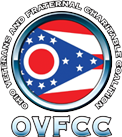Ohio Lottery spending $22.5 million on unwanted gaming machines

By Maggie Thurber | for Ohio Watchdog
MONEY GRAB: The Ohio Veterans and Fraternal Charitable Coalition says the Lottery Commission plan to replace their gaming machines and take a portion of the profits is nothing but a money grab.
The Ohio Lottery Commission is spending $22.5 million to purchase and maintain 1,200 new gaming machines for veteran and fraternal organizations although many of the intended recipients don’t want them.
Some members of those groups see the plan as a money grab.
Ohio law permits various veterans group to conduct certain types of gaming in their posts and lodges. But after voters approved casino gambling in the state, law enforcement agencies started looking at all gaming activities to see if they complied with the new laws.
That’s when various veteran and fraternal organizations discovered the machines they operated in their posts and lodges were illegal.
In October, Pete Thomas, chief of the Attorney General’s Charitable Law Section, told Bill Seagraves, executive director of Veterans of Foreign Wars Charities, that electronic raffle games qualify as slot machines under state law and were, therefore, illegal.
Since then, the Ohio Veterans and Fraternal Charitable Coalition has worked to modify state law to allow the continued use of the machines. House Bill 325, which would allow certain organizations to operate charitable video bingo games, is pending in the Policy and Legislative Oversight Committee.
Seagraves said the bill was on its way to being passed until Gov. John Kasich “said he didn’t want to see this go through and then everyone got cold feet.”
Just before the bill was introduced, the Lottery Commission announced its plan to replace the illegal machines with their own — and take a portion of the profits.
“It doesn’t make sense,” Seagraves said. “They’re saying that what we’re doing is illegal but the lottery can come in, do the same thing, and suddenly it’s not illegal.”
OVFCC sued. The court issued a temporary restraining order, so the groups are allowed to continue using the machines until a decision is issued.
“We hope the governor will realize that his opposition to H.B. 325 could have a detrimental effect on veterans, charities and local communities,” said Seagraves, who is also chairman of OVFCC. “We maintain that the machines are legal and that the courts will rule in our favor.”
So with a bill and a lawsuit that might make the current machines legal, why is the Lottery Commission spending millions of dollars to purchase and maintain new machines for all those affected?
Seagraves thinks it’s all about the money.
Current law says a portion of the proceeds of OVFCC gaming must go to charity. Seagraves said the total given is approaching $9 million. The rest of the funds raised go to the organizations to help pay for buildings and overhead at the posts.
“The lottery wants that income for themselves. Guaranteed,” Seagraves said. “There are a lot of upset veterans in the state with the lottery trying to get their money.”
Under the Lottery Commission’s plan, 60 percent of the gross proceeds from the new machines will go to the commission and 40 percent will go to the lodges and Intralot, the Greek company with the contract to manufacture and service the machines.
Seagraves said Intralot was to get 1.83 percent of the gross profits from each machine.
“Our posts aren’t going to get a lot of money out of this,” he said.
Unlike current law, there is no charity element in the lottery proposal, Seagraves added.
“Just last week we helped a lady with four kids and a disabled husband,” Seagraves said. “She didn’t have money for food and we helped her with that and got her caught up on her bills. Who is going to do that kind of thing if we don’t have the funds to do it? The lottery isn’t going to do that.”
In fact, the Lottery Commission can only put money toward education, per Ohio law, but Seagraves said even that is “shady.”
“Say the state budgets $400 million for schools,” he explained. “If the lottery has $100 million, the schools don’t get a total of $500 million. They just get the original $400 million budgeted amount. So technically, it’s raising money for the state, not the schools.”
According to testimony at the Controlling Board hearing on the purchase request, the next generation gaming machines are supposed to generate $7 million for lodges and $10.7 million for the Lottery Commission’s education fund in the first full year of deployment.
However, later in the hearing, Lottery Commission Operations Director Connie Miller said the estimated revenue per machine would be about $500. With 1,200 machines, that’s only $600,000 per year, not a total of $17.7 million.
Miller said about 600 locations had requested to participate, but Seagraves said the number is exaggerated.
“Some have told the commission they might be interested if we lose our court case,” he said. “They figure that something is better than nothing. But even if we lose our court case, many of us won’t take them.”
Miller also said that if fraternal and veterans organizations didn’t want the new machines, they could be placed in bars, restaurants and bowling alleys, just like the lottery’s other machines.
This isn’t just an issue for veterans and fraternal organizations, Seagraves warned.
“We sponsor little league baseball, scholarships and other community events,” he said. “People are sympathetic to what vets do and they like what we do because they see it in their community. If the voters were to vote on this, we’d win — hands down — because people do care.”
The Lottery Commission didn’t respond to requests to be interviewed.
You can reach Maggie Thurber via email at maggie@ohiowatchdog.org







